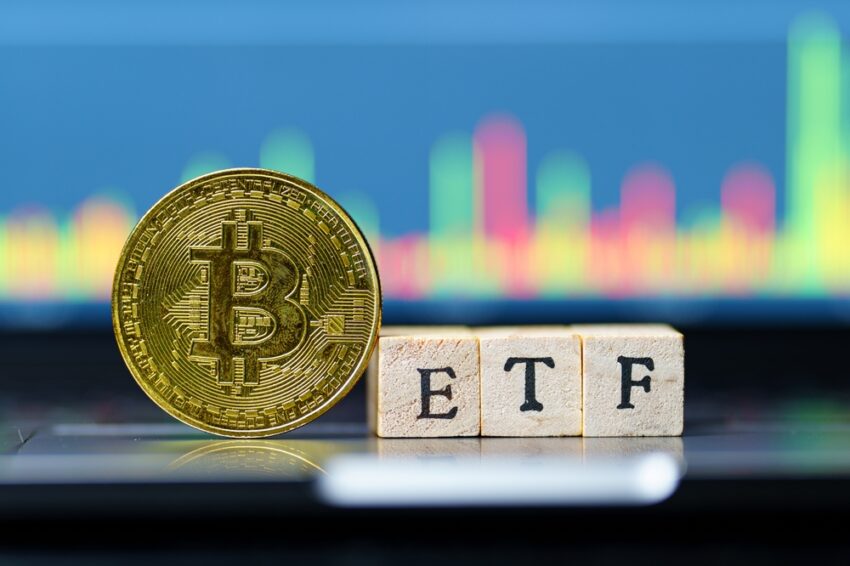Bitcoin ETFs Explained
The approval of a spot Bitcoin exchange-traded fund (ETF) in January last year caused a rise in Bitcoin investment, verifying the crypto’s fame. It created the path to more accessible digital asset-supported ETFs.
Rather than bearing the technical struggle of generating and holding a BTC wallet, investors can invest indirectly in Bitcoin from a brokerage account. Bitcoin ETFs exist in either spot or futures products.
A spot Bitcoin ETF provides shares equivalent to the held Bitcoin amount and is supported by Bitcoin. A rise in the coins’ value causes an increase in the ETF’s value.
The Bitcoin futures monitors the future performance of Bitcoin. It utilizes futures contacts between two parties who decide to purchase or sell a specific Bitcoin amount at a set price on a particular future date.
Bitcoin Bonds
A bond is an IOU (I Owe You), a certificate that confirms a debt’s existence with various entities:
- Corporate-issued bonds: These higher-risk funds must be generated by firms with the objective of growing or refinancing.
- Government-provided bonds: They are low-risk, and investors are repaid the initial amount and interest.
- Municipal bonds: These low-risk and tax-exempt interest rates are utilized to generate capital to finance infrastructure initiatives.
Bitcoin Bond ETF
ETF investment approaches are a more regulated and accessible means to invest in Bitcoin. It guarantees low-risk investment, establishing a stable income source for investors.
Bond ETFs refer to funds invested in different convertible fixed-income securities, for instance, government bonds. A Bitcoin bond ETF refers to an investment in bonds offered by firms that utilize the bonds’ earnings to buy Bitcoin.
Bitcoin bond ETFs are crypto-supported bonds and run on blockchain technology. Hence, they are issued and preserved in decentralized and borderless smart contracts.
Bitcoin bond ETFs are programmed to manage repayment and interest terms, eradicating arbitrators like banks.
Benefits of Bitcoin Bond ETF
- The bond provides steady interest payments that can be appreciated during protracted bear markets and unpredictability.
- Bitcoin bond ETFs ensure Bitcoin exposure without technological problems.
- They guarantee protection, thus offering peace of mind, especially to conservative investors.
- The transparency of the open ledger ensures tracking on the blockchain, including an investment’s performance and payout timings.
Demerits of Bitcoin Bond ETFs
- Despite ETFs being different from Bitcoin, they are firmly connected to price. Hence, they can be more unpredictable than other ETFs.
- A considerable fall in Bitcoin’s price can result in a bond issuer struggling to maintain its value or repay the bond.
How Bitcoin Bond ETFs Function
When investors purchase ETF shares, their funds are utilized to purchase bonds or equivalent securities. A bond exchange-traded fund produces returns mainly from the interest paid by the held bonds.
Various factors affect the fluctuation of an ETF’s share price. They include:
- The bond’s market value
- The price of Bitcoin
- Market interest rate
- The issuing firm’s viability
- The overall bond market’s state
This type of investment works in the following way:
Bitcoin bond ETFs’ investment focus entails acquiring exposure to bonds such as the one offered by MicroStrategy. The capital generated from the bonds is utilized to purchase additional Bitcoin, which directly connects the value of the bond to the price of the digital currency.
Firms such as MicroStrategy provide securities with fixed interest in the form of convertible notes or bonds. Under unique terms, they can be converted into the firm’s stock.
An ETF’s managers actively work on the bond and equivalent securities. They rely on the market’s state to implement investment decisions, enabling them to maximize returns from the bonds.
Traditional Bonds Versus Bitcoin Bonds
Conventional bonds are backed by corporations or governments, making them reliable. On the contrary, Bitcoin bonds expose investors to crypto.
Despite being riskier compared to traditional bonds, Bitcoin bonds have more flexibility. They remain available in the conventional financial markets and are tradable on stock exchanges.
Traditional bonds offer reliable access to trade in developed, significantly regulated markets. On the contrary, Bitcoin bonds rely on the ETF trading volume, which may fluctuate significantly.
Editorial credit: Rokas Tenys / Shutterstock.com

